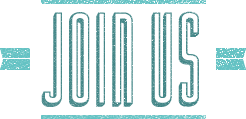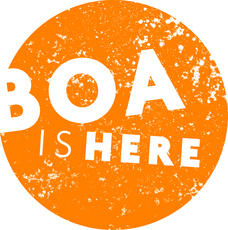AGENDA:
I hope you are doing well! Come to our Zoom meeting on Monday at 11am. Office hours are on Thursday at 11am and I will open it up to everyone in the waiting room. Email me with questions and concerns. Grades are finalized on Tuesday, but I'm not accepting any new work for MP3 (that closed on Friday 4/24).
Prepare an outline for your project and begin working on the project (writing and artifacts). DUE DATE: Friday, May 1
Look over the example outline on the pdf attached to the assignment on Google Classroom. Also, look at the other document attached for how to organize your outline. Get very specific!
Miss you. Stay well!
Sunday, April 26, 2020
Saturday, April 25, 2020
Extra Credit---BOA Event
|
Friday, April 24, 2020
Thursday, April 23, 2020
Reminder: MultiGenre Project proposals due tomorrow
AGENDA:
Just a reminder to post your proposals for the project on Google Classroom. That's where I can give you feedback on your project. You can always email me with questions and thoughts (I'd love to hear from you!).
Office hour meetings are on Thursdays at 11am, and Mr. Craddock and I will have a whole Creative Writing meeting on next Monday at 11am (a chance to meet everyone in the department). Invites forthcoming.
Stay well. Miss you.
Just a reminder to post your proposals for the project on Google Classroom. That's where I can give you feedback on your project. You can always email me with questions and thoughts (I'd love to hear from you!).
Office hour meetings are on Thursdays at 11am, and Mr. Craddock and I will have a whole Creative Writing meeting on next Monday at 11am (a chance to meet everyone in the department). Invites forthcoming.
Stay well. Miss you.
Monday, April 20, 2020
Marking Period 4/Multi Genre Project
AGENDA:
Welcome to a new marking period. I hope you are staying healthy and well. Remember you can still send me any missing and extra credit work on Google Classroom this week. Lots of extra credit for your grade for MP3.
So, let's look at this marking period.
Assignment: Week 1--Due Friday, 4/24 Your detailed proposal turned in on Google Classroom!
Assignment: Week 1--Due Friday, 4/24 Your detailed proposal turned in on Google Classroom!
We're going to be working on a multigenre project that will ask you to write a 5 page historical short story along with many linking "artifacts" that help explain and add to the story world that you build. I've uploaded all the information on Google Classroom for you to read and follow. This is a four to five week project for you to work on at home, culminating in presentations to classmates over Zoom.
This week is time for you to brainstorm your project and write out a detailed proposal. Think about your characters, setting (place/time), and the plot. What accurate historical research will you have to do to make the story believable and create "artifacts" that fill in the background of the story.
Here's an excerpt from the instructions of the project:
"The Multi-genre project is a great assessment tool for 9th-12th grade students! It is designed to ignite a student's creativity while writing a work of fiction that is historically accurate. For example, I have my students choose a war in history to base their project off of. This project allows them to apply all of the literary elements we have studied from plot, to character analysis, to theme, while writing their story. Students also have to research the war they have chosen to center their project around and present it in a format that ties into their story. I recommend completing this project over a six week period with multiple check-in points where students conference with you about their progress. On the day the project is due, students present their work to the class by giving a brief overview of their work. I then give the students two days to perform a gallery walk and get lost in each other's stories. "And here are some examples of the genres you can choose from (check Google Classroom for the complete instructions):
Genre Examples
Diary/journal entry
Song lyrics Tickets Flash backs Draft card Letters Poem Pilots log Brochure Advertisement/billboard Newspaper article Magazine article
Evidence files Blue prints Painting Puzzle Passport Artifacts Flyers ID's Receipts Recipes Photographs
A Brief List of Genres:
Journal Entries
Personal Letter
Greeting Card
Schedule/Things to Do List
Inner Monologue Representing Internal Conflicts
Classified or Personal Ads
Personal Essay or Philosophical Questions
Top Ten List/Glossary or Dictionary
Poetry
Song Lyrics
Autobiographical Essay
Contest Entry Application
Business Letter or Correspondence/Persuasive or Advocacy Letter
Biographical Summary
Critique of a Published Source
Speech or Debate
Historical Times Context Essay
Textbook Article
Science Article or Report/Business Article or Report
Lesson Plan
Encyclopedia Article
Short Scene from a Play with Notes for Stage Directions
Short Scene from a Movie with Notes for Camera Shots
Dialogue of a Conversation among Two or More People
Short Story
Adventure Magazine Story
Ghost Story
Myth, Tall Tale, or Fairy Tale
Talk Show Interview or Panel
Recipe and Description of Traditional Holiday Events
Classroom Discussion
Character Analysis or Case Study
Comedy Routine or Parody
Liner Notes
Picture book
Chart or Diagram with Explanation and Analysis
Brochure or Newsletter
Time Line or Chain of Events
Map with Explanation and Analysis
Magazine or TV Advertisement or Infomercial
Restaurant Description and Menu
Travel Brochure Description
How-To or Directions Booklet
Receipts, Applications, Deeds, Budgets or Other Documents
Wedding, Graduation or Special Event Invitation
Birth Certificate
Local News Report
Pop-Up book
Review and Poster for a Movie, Book, or TV Program
Board Game or Trivial Pursuit with Answers and Rules
Comic Strip or Graphic Novel excerpt
Power Point Presentation
Informational Video
Web Site
Future News Story
Letter to the Editor
Newspaper or Magazine Feature/Human Interest Story
Obituary, Eulogy or Tribute
News Program Story or Announcement
Tabloid Article
Students must choose one main form of writing genre to reuse repeatedly throughout their project to explain their story and keep it flowing. This one form of writing genre only counts as one of their ten even though they are going to use it multiple times throughout their project."
The complete assignment has been posted on Google Classroom. Be sure to post on Google Classroom when you complete a weekly assignment and be sure to cite your sources. Keep a record of your research!
Let me know if you have any questions about the assignment and start brainstorming! The time period you use does not have to be a war, but should provide a good background for your story.
Stay well. I miss you.
Friday, April 17, 2020
Grades MP3 and new work for MP4
AGENDA:
I hope you are doing well. I am so sorry your year has been so cruelly affected like this. Please know that I miss you so much.
The marking period ends today, but I still can accept missing work and extra credit assignments for this marking for one more week. Hooray!
Grades will be calculated on all your assigned work turned in (or not) by March 13.
IMPORTANT: I am giving a 10/10 for any and all blog posts for reading and writing assignments after that date.
PLEASE, please take advantage of this and post on the blog or in Google classroom as appropriate.
You will be happy you did! Your grade will be raised a lot! Email me and let me know what you post.
Marking Period 4 begins on Monday and I will be posting new reading and writing assignments. I also want to have Zoom meetings to share our thoughts and writings, maybe once a week. Let me know when you are available, or I'll just schedule a meeting, invite you and see who shows up!
Stay well...let me know if you have questions or concerns. You can chat with each other on Google Classroom, too!
I hope you are doing well. I am so sorry your year has been so cruelly affected like this. Please know that I miss you so much.
The marking period ends today, but I still can accept missing work and extra credit assignments for this marking for one more week. Hooray!
Grades will be calculated on all your assigned work turned in (or not) by March 13.
IMPORTANT: I am giving a 10/10 for any and all blog posts for reading and writing assignments after that date.
PLEASE, please take advantage of this and post on the blog or in Google classroom as appropriate.
You will be happy you did! Your grade will be raised a lot! Email me and let me know what you post.
Marking Period 4 begins on Monday and I will be posting new reading and writing assignments. I also want to have Zoom meetings to share our thoughts and writings, maybe once a week. Let me know when you are available, or I'll just schedule a meeting, invite you and see who shows up!
Stay well...let me know if you have questions or concerns. You can chat with each other on Google Classroom, too!
Wednesday, April 15, 2020
End of marking period FRIDAY 4/17
AGENDA:
Reminder to get your missing work in and any extra credit work. Upload work to google Classroom and email me with any questions! If you have writing that you have done over the past couple of weeks, be sure to post it so that you can get a good grade with the extra credit!
Stay well. Miss you!
Reminder to get your missing work in and any extra credit work. Upload work to google Classroom and email me with any questions! If you have writing that you have done over the past couple of weeks, be sure to post it so that you can get a good grade with the extra credit!
Stay well. Miss you!
Monday, April 13, 2020
2nd person Short Stories due by 4/17
AGENDA:
I need to hear from you by email or by posting on the blog or on Google classroom!
Just a reminder that this is the last week of the marking period!
While I have posted on the blog and on Google Classroom several assignments you can work on, you are still responsible for completing the assignment "Writing in the 2nd person Short Story" and uploading it on Google Classroom for assessment while we are continuing instruction.
There is also a Free Writing assignment which can count as extra credit for you. Any additional writing in any genre that you do can be uploaded there. I will be very generous with extra credit!
Please upload your work, check the blog and Google Classroom and stay well! Miss you...
Here is the earlier post about writing in the 2nd person:
I need to hear from you by email or by posting on the blog or on Google classroom!
Just a reminder that this is the last week of the marking period!
While I have posted on the blog and on Google Classroom several assignments you can work on, you are still responsible for completing the assignment "Writing in the 2nd person Short Story" and uploading it on Google Classroom for assessment while we are continuing instruction.
There is also a Free Writing assignment which can count as extra credit for you. Any additional writing in any genre that you do can be uploaded there. I will be very generous with extra credit!
Please upload your work, check the blog and Google Classroom and stay well! Miss you...
Here is the earlier post about writing in the 2nd person:
Writing in 2nd person/Lorrie Moore
AGENDA:
AGENDA:
Read aloud Lorrie Moore stories

Lorrie Moore on Writing:
https://lithub.com/lorrie-moore-its-better-to-write-than-be-a-writer/
https://www.lamag.com/culturefiles/5-writing-tips-from-lorrie-moore/
Writing in the Second Person POV
What is the Second Person?
Excellent blog post:
http://www.eclecticeditor.com/2012/10/effective-narration-101-second-person-narration/
An example from
www.writing.com/main/view_item/item_id/1200131-That-Second-Person
Let us talk about writing, just me and you. Pull up a chair and make yourself comfortable. Pour a cup of joe, or whatever your favorite poison is. Settle in and we'll get down to the nitty gritty. I can go on for hours about this writing business, but I won't take up too much of your time today. Writing is one my favorite subjects. I'm thinking it might be yours too. Why do I think it might be yours? Well, you're here aren't you? That's a pretty good indication. I could be wrong though, and I'm more than willing to admit that. But let's talk a bit if you don't mind.
See this paragraph above? That's one way to use the second person properly, when directly addressing someone. I'm addressing you, the reader and possible writer, directly. The paragraph is written with a specific audience in mind, not a general one. I blame my first college professor for my pet peeve about the misuse of the second person. He pounded it into my freshmen skull many years ago that "you" had no place in any essay except for extraordinary circumstances. When I had him again for nearly every other English class, that lesson was simply emphasized in other writings. Other professors touched on it in literature, but he really sent it home.
I mostly blame advertisement for the misuse of the second person in new writing. I don't know how many times I have driven my family to distraction because I've absentmindedly disagreed with an advertisement. Listen to those things sometime - advertisements. Most of them are trying to target a specific market, but the way the commercials are written is so broad. The net thrown tries to catch as many people as possible. The public at large is included in the message. "You" is inclusive. The message is worded so everyone hearing it is led to believe they need that product or service by the simple use of that one little word. It's no wonder beginning writers use it in their writing; they're exposed to it constantly.
Another reason some beginning writers use the second person incorrectly is because they are "telling the tale." Most people learn to talk before they learn to write, and more people are better at telling stories than writing them. When beginning writers start to write the stories in their heads, often things become lost in the translation. Oral telling is different than the written word, and some writers don't make the distinction between what's said and what's written. When storytellers have an audience in front of them, they can say "It's so black that you can't see your hand in front of your face..." or "...the wind's so cold it'll cut right through ya." Storytellers talk directly to their audience. Even if the audience doesn't "feel" the cold, the use of the second person can bring them deeper into the story.
It can be done; Half Asleep in Frog Pajamas by Tim Robbins is a fictional novel written in second person, and there are several short stories which use the second person well, but they are rare. Also, the "choose your own adventure" genre of fiction has often been written in second person. Now that the Internet is so well established, interactive stories and many role playing forums are perfect homes for fictional stories that incorporate the second person.
In non-fiction writing, the use of the second person is commonplace. As in this opening sentence from Take Control of Your Sales by Sonya Carmichael Jones, "Regardless of your writing genre, marketing is the primary means by which your book sales are generated." This article addresses a specific audience, the book writer who wants to sell books. By inserting "you" into the article, the author attempts to draw the writer in and make the article personal. Such casual writing is routine nowadays. However, the above sentence could just have easily been written, "Regardless of genre, marketing is the primary means by which book sales are generated." Both are correct, it's simply a matter of preference.
If used properly, use of the second person can draw the reader into a piece like no other word. Such as this statement: "If you're one of the millions of people in the United States who has ever..." It is written directly to a specific audience. It attempts to hook that audience immediately. Hopefully, anyone who falls into the category of the article will read the rest of article with interest. Those who do not fall under the umbrella of whatever the article covers will most likely not read it. However, since they are not the intended audience, the use of the second person has fulfilled a purpose as well.
Using the second person is the easy way, but it can alienate half the readers in the blink of an eye. Consider an article written about some extreme sport where the author has written "... and you feel the rush of wind screaming through your hair. This is why you dig freefall, the rush..." Well, there went all of his sensitive bald readers and anyone who's never felt freefall, or those who don't "dig" it.
Using the second person can be a very powerful tool in an author's toolkit. But if it's used incorrectly it can gum up the works good and proper. Generally, try not to use the second person in an essay or a fictional story that is not aimed at a specific audience. There are always exceptions of course. What would this wonderful language be without exceptions? In my opinion, there are ways to get around using the second person - notice how I have not used it since the first paragraph except in quotations? A writer simply has to be creative. It's more fun that way. Is there a better way to enhance writing skills than finding more creative ways to say things? I can't think of one.
Well, I enjoyed this time with you. I hope you did too. Thanks for coming by and listening to me voice my opinion. It was a blast. I've got to get on to other things, but I hope you'll stop by again soon.
Take care.
from
www.writing.com/main/view_item/item_id/1200131-That-Second-Person
Group #1 Wikipedia on second person narrative:
http://en.wikipedia.org/wiki/Second-person_narrative
Group #2 Why you should write in 2nd person:
http://thewritepractice.com/second-person/
Group #3 Writing in second person:
http://www.chuffedbuffbooks.com/writing-in-second-person-atwood-to-tolstoy/
Two more short stories in 2nd person
http://42opus.com/shortstory/secondperson
And more
http://www.goodreads.com/story/tag/second-person
Lorrie Moore:
http://www.shortstoryproject.com/how-to-talk-to-your-mother-notes/
http://juked.com/2013/02/micah-stack-how-to-write-a-story.asp
and Italo Calvino
http://www.tcomer.faculty.defiance.edu/calvino/ifon.htm
Read aloud Lorrie Moore stories
Lorrie Moore on Writing:
https://lithub.com/lorrie-moore-its-better-to-write-than-be-a-writer/
https://www.lamag.com/culturefiles/5-writing-tips-from-lorrie-moore/
Writing in the Second Person
Writing in the Second Person POV
What is the Second Person?
Excellent blog post:
http://www.eclecticeditor.com/2012/10/effective-narration-101-second-person-narration/
An example from
www.writing.com/main/view_item/item_id/1200131-That-Second-Person
Let us talk about writing, just me and you. Pull up a chair and make yourself comfortable. Pour a cup of joe, or whatever your favorite poison is. Settle in and we'll get down to the nitty gritty. I can go on for hours about this writing business, but I won't take up too much of your time today. Writing is one my favorite subjects. I'm thinking it might be yours too. Why do I think it might be yours? Well, you're here aren't you? That's a pretty good indication. I could be wrong though, and I'm more than willing to admit that. But let's talk a bit if you don't mind.
See this paragraph above? That's one way to use the second person properly, when directly addressing someone. I'm addressing you, the reader and possible writer, directly. The paragraph is written with a specific audience in mind, not a general one. I blame my first college professor for my pet peeve about the misuse of the second person. He pounded it into my freshmen skull many years ago that "you" had no place in any essay except for extraordinary circumstances. When I had him again for nearly every other English class, that lesson was simply emphasized in other writings. Other professors touched on it in literature, but he really sent it home.
I mostly blame advertisement for the misuse of the second person in new writing. I don't know how many times I have driven my family to distraction because I've absentmindedly disagreed with an advertisement. Listen to those things sometime - advertisements. Most of them are trying to target a specific market, but the way the commercials are written is so broad. The net thrown tries to catch as many people as possible. The public at large is included in the message. "You" is inclusive. The message is worded so everyone hearing it is led to believe they need that product or service by the simple use of that one little word. It's no wonder beginning writers use it in their writing; they're exposed to it constantly.
Another reason some beginning writers use the second person incorrectly is because they are "telling the tale." Most people learn to talk before they learn to write, and more people are better at telling stories than writing them. When beginning writers start to write the stories in their heads, often things become lost in the translation. Oral telling is different than the written word, and some writers don't make the distinction between what's said and what's written. When storytellers have an audience in front of them, they can say "It's so black that you can't see your hand in front of your face..." or "...the wind's so cold it'll cut right through ya." Storytellers talk directly to their audience. Even if the audience doesn't "feel" the cold, the use of the second person can bring them deeper into the story.
It can be done; Half Asleep in Frog Pajamas by Tim Robbins is a fictional novel written in second person, and there are several short stories which use the second person well, but they are rare. Also, the "choose your own adventure" genre of fiction has often been written in second person. Now that the Internet is so well established, interactive stories and many role playing forums are perfect homes for fictional stories that incorporate the second person.
In non-fiction writing, the use of the second person is commonplace. As in this opening sentence from Take Control of Your Sales by Sonya Carmichael Jones, "Regardless of your writing genre, marketing is the primary means by which your book sales are generated." This article addresses a specific audience, the book writer who wants to sell books. By inserting "you" into the article, the author attempts to draw the writer in and make the article personal. Such casual writing is routine nowadays. However, the above sentence could just have easily been written, "Regardless of genre, marketing is the primary means by which book sales are generated." Both are correct, it's simply a matter of preference.
If used properly, use of the second person can draw the reader into a piece like no other word. Such as this statement: "If you're one of the millions of people in the United States who has ever..." It is written directly to a specific audience. It attempts to hook that audience immediately. Hopefully, anyone who falls into the category of the article will read the rest of article with interest. Those who do not fall under the umbrella of whatever the article covers will most likely not read it. However, since they are not the intended audience, the use of the second person has fulfilled a purpose as well.
Using the second person is the easy way, but it can alienate half the readers in the blink of an eye. Consider an article written about some extreme sport where the author has written "... and you feel the rush of wind screaming through your hair. This is why you dig freefall, the rush..." Well, there went all of his sensitive bald readers and anyone who's never felt freefall, or those who don't "dig" it.
Using the second person can be a very powerful tool in an author's toolkit. But if it's used incorrectly it can gum up the works good and proper. Generally, try not to use the second person in an essay or a fictional story that is not aimed at a specific audience. There are always exceptions of course. What would this wonderful language be without exceptions? In my opinion, there are ways to get around using the second person - notice how I have not used it since the first paragraph except in quotations? A writer simply has to be creative. It's more fun that way. Is there a better way to enhance writing skills than finding more creative ways to say things? I can't think of one.
Well, I enjoyed this time with you. I hope you did too. Thanks for coming by and listening to me voice my opinion. It was a blast. I've got to get on to other things, but I hope you'll stop by again soon.
Take care.
from
www.writing.com/main/view_item/item_id/1200131-That-Second-Person
Group #1 Wikipedia on second person narrative:
http://en.wikipedia.org/wiki/Second-person_narrative
Group #2 Why you should write in 2nd person:
http://thewritepractice.com/second-person/
Group #3 Writing in second person:
http://www.chuffedbuffbooks.com/writing-in-second-person-atwood-to-tolstoy/
Two more short stories in 2nd person
http://42opus.com/shortstory/secondperson
And more
http://www.goodreads.com/story/tag/second-person
Lorrie Moore:
http://www.shortstoryproject.com/how-to-talk-to-your-mother-notes/
http://juked.com/2013/02/micah-stack-how-to-write-a-story.asp
and Italo Calvino
http://www.tcomer.faculty.defiance.edu/calvino/ifon.htm
Subscribe to:
Comments (Atom)




